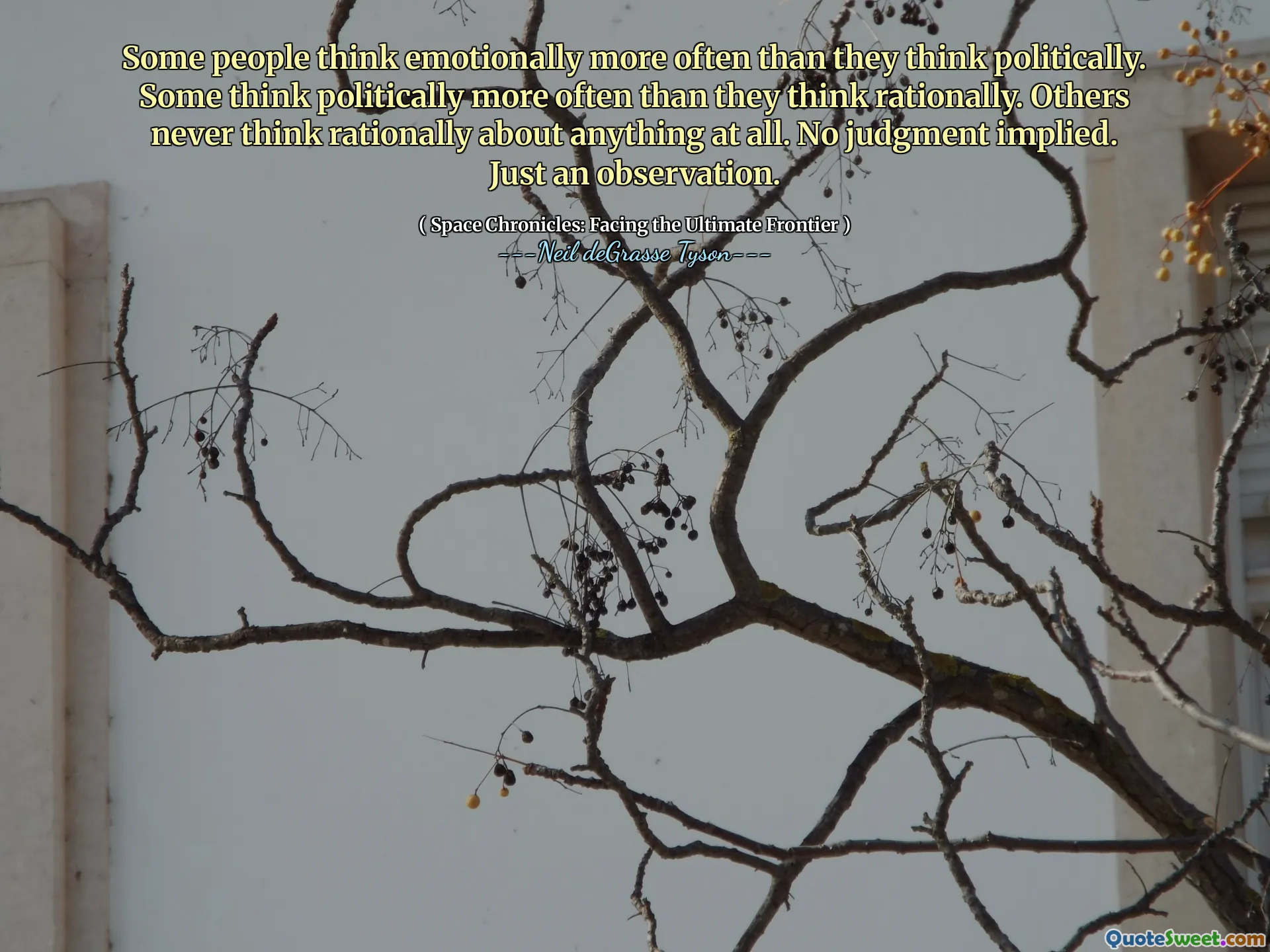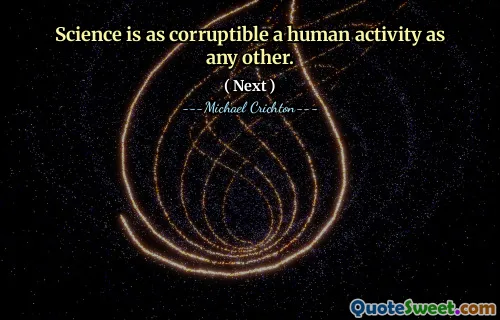
Some people think emotionally more often than they think politically. Some think politically more often than they think rationally. Others never think rationally about anything at all. No judgment implied. Just an observation.
This quote offers a fascinating commentary on the complexities of human thought and decision-making. It highlights how individuals tend to process information through different lenses—emotion, politics, and rationality—often prioritizing one mode over others. The emphasis on emotional thinking suggests that many people base their opinions and decisions on feelings rather than objective analysis. This emotional approach can lead to passionate engagements but may also cause biases and impulsive actions. In contrast, political thinking is shaped by social influences, collective identities, and ideological considerations, which might sometimes overshadow personal rational evaluation. The acknowledgment that some individuals never think rationally about anything reflects a sobering reality about cognitive limitations, biases, or possibly apathy. What is striking about this observation is that it makes no moral judgment; rather, it admits the diverse ways humans navigate their internal and external worlds. Recognizing these different modes of thought can be empowering, as it invites introspection about our own tendencies and biases. It also underscores the importance of striving for a balance—remaining emotionally aware, politically conscious, yet critically rational—especially when facing complex societal challenges. The quote encourages an awareness that no single approach is inherently superior, but understanding the spectrum of human thought can lead to more empathetic and effective communication and decision-making. Ultimately, it prompts us to reflect on how these perspectives shape our views, actions, and interactions with others, fostering a deeper understanding of the human condition.



